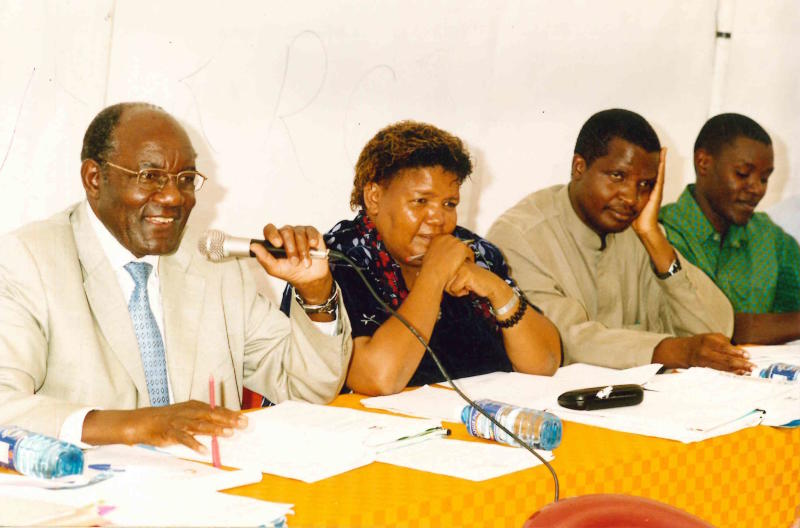×
The Standard e-Paper
Smart Minds Choose Us

Devolution Committee Convenor Dr Adhu Awiti (left) expresses his sentiments as commissioners Prof. Wanjiku Kabira, Gitaha Kangu and Fidelis Wangata look on at the Bomas of Kenya. [Archive, Standard]
According to Moi Cabinets, a publication by the Kenya Year Book Editorial Board and which The Standard is serialising, a former rebel got to know of his elevation to the Cabinet under very interesting circumstances.